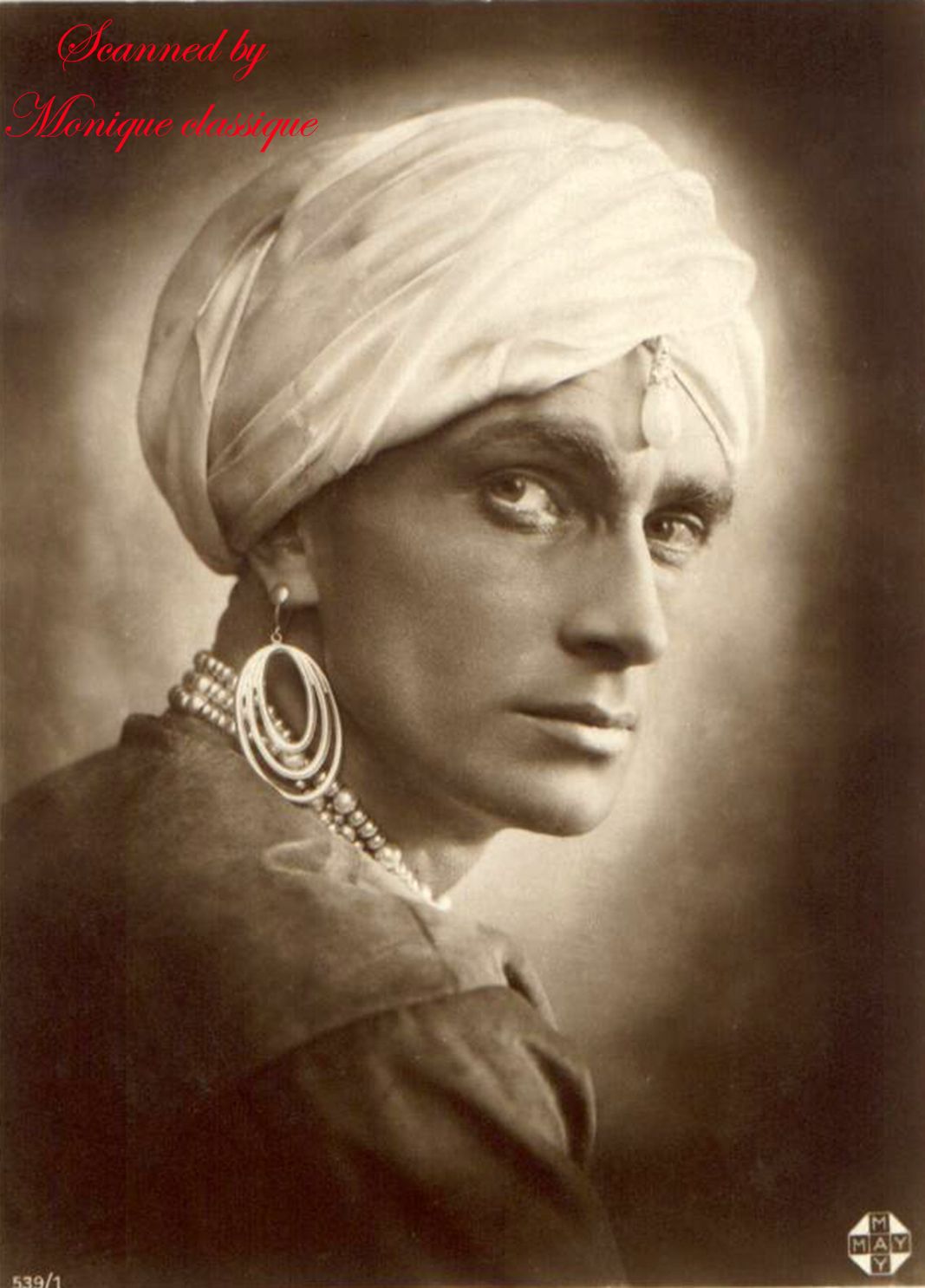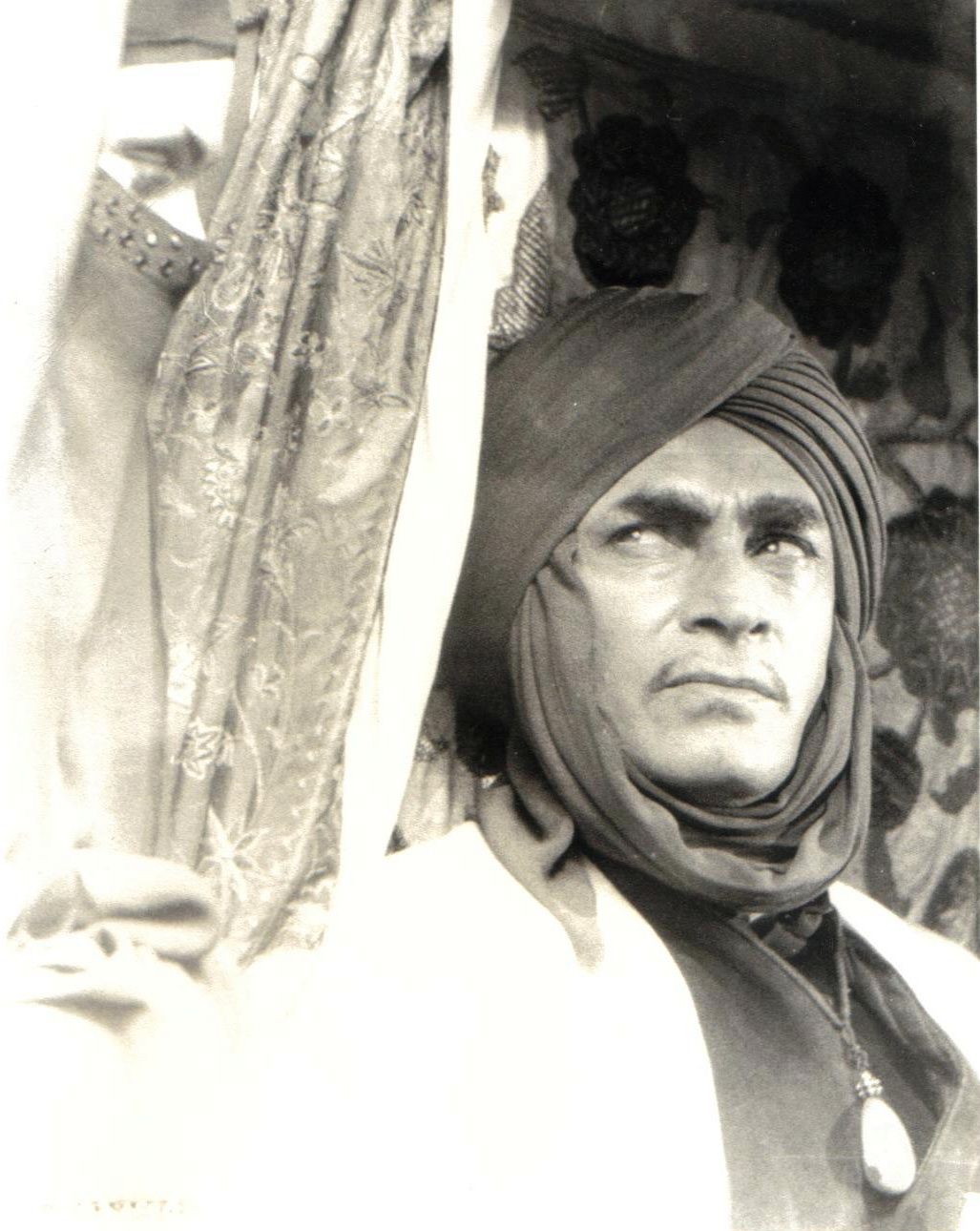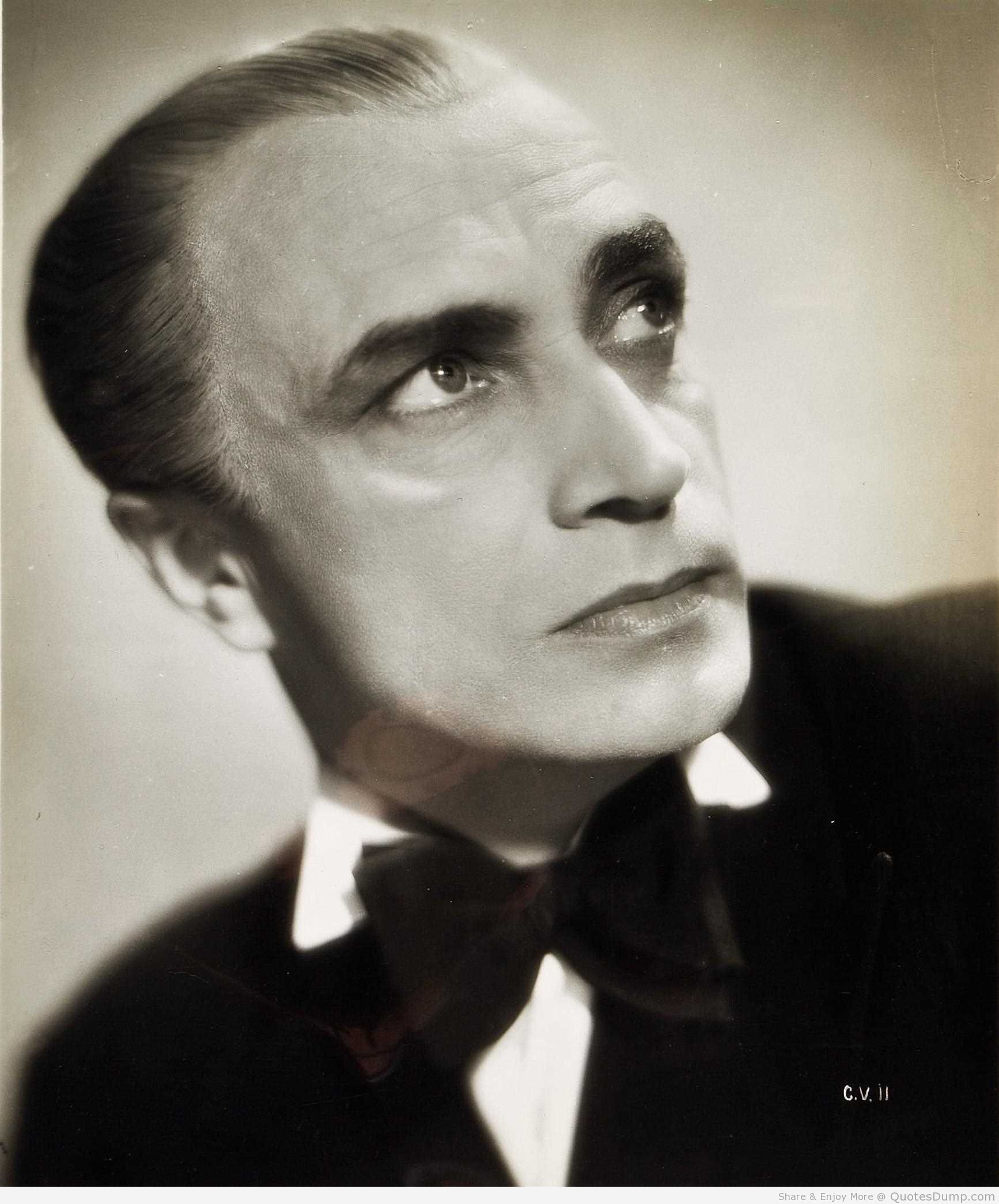Conrad Veidt: The Unsung Hero Of Silent Cinema And Anti-Nazi Activism
In the annals of cinema history, few actors possess the enigmatic allure and profound impact of Conrad Veidt. Best remembered for his iconic roles in silent films and early horror movies, such as the unforgettable Cesare in The Cabinet of Dr. Caligari, Veidt's legacy extends far beyond his captivating on-screen performances. He was a man of immense talent, a pioneer of expressionist acting, and, perhaps most significantly, one of the industry’s most unsung champions against the Third Reich.
Born Hans Walter Conrad Veidt, his journey from a German stage sensation to a prominent Hollywood star was marked by artistic brilliance and unwavering moral conviction. His career spanned pivotal eras in filmmaking, allowing him to leave an indelible mark on both German Expressionism and classic Hollywood cinema. This article delves into the remarkable life and enduring influence of Conrad Veidt, exploring his most celebrated roles, his significant contributions to film, and his courageous stand against Nazi tyranny.
Table of Contents
- Biography: The Life and Times of Conrad Veidt
- The Cabinet of Dr. Caligari: A Cinematic Landmark
- Master of the Macabre: Veidt's Horror Legacy
- From Germany to Hollywood: A Stand Against Tyranny
- British Stardom and the War Years
- Casablanca: The Villain with a Conscience
- A Lasting Legacy: Conrad Veidt's Enduring Impact
- Conrad Veidt: A Pioneer of Expressionism
Biography: The Life and Times of Conrad Veidt
Hans Walter Conrad Veidt, born on January 22, 1893, in Berlin, Germany, was destined for a life that would intertwine deeply with the burgeoning art of cinema. His father, Philipp, a former military man who transitioned into civil service, provided a stable, if perhaps traditional, upbringing. Young Conrad's path, however, would diverge significantly from the military discipline of his father, leading him towards the dramatic arts.
Early Life and Education
Conrad Veidt attended the Sophiengymnasium (secondary school) in the Schoeneberg district of Berlin. His academic journey was somewhat unconventional; he graduated without a diploma in 1912, notably ranking last in his class. This early indication of a non-conformist spirit perhaps hinted at the unique artistic path he would forge. Despite his academic struggles, Veidt was drawn to the stage, where his innate talent quickly became apparent.
The German Stage and Silent Screen
Before his global cinematic fame, Conrad Veidt established himself as one of the premiere actors of the German stage and silent screen. He attracted early attention for his roles in various films, quickly gaining recognition for his intense performances and striking presence. This period was crucial in shaping his acting style, particularly his embrace of expressionist techniques that would define some of his most memorable characters. His command of the stage translated seamlessly to the silent screen, where his expressive face and body language conveyed complex emotions without the need for dialogue.
Personal Data: Conrad Veidt
| Attribute | Detail |
|---|---|
| Full Name | Hans Walter Conrad Veidt |
| Born | January 22, 1893 |
| Died | April 3, 1943 (aged 50) |
| Place of Birth | Potsdamer Straße 51, Berlin, German Empire |
| Place of Death | Los Angeles, California, USA |
| Cause of Death | Heart Attack |
| Nationality | German (later British citizen) |
| Occupation | Actor |
| Years Active | 1916–1943 |
| Spouse(s) | Auguste Holl (m. 1919; div. 1922) Felicitas Radke (m. 1923; div. 1929) Ilona Prager (m. 1933) |
| Notable Roles | Cesare in The Cabinet of Dr. Caligari (1920), Major Strasser in Casablanca (1942), Jafar in The Thief of Bagdad (1940) |
The Cabinet of Dr. Caligari: A Cinematic Landmark
While Conrad Veidt had already made a name for himself on the German stage and screen, it was his chilling portrayal of Cesare, the somnambulist, in Robert Wiene's 1920 masterpiece, The Cabinet of Dr. Caligari, that cemented his place in cinematic history. This film, a seminal work of German Expressionism, revolutionized filmmaking with its distorted sets, sharp angles, and painted shadows, all designed to reflect the psychological turmoil of its characters.
Veidt's performance as Cesare was central to the film's success. As the hypnotized automaton compelled to commit murders, his gaunt frame, wide, vacant eyes, and slow, deliberate movements perfectly embodied the film's unsettling atmosphere. He became the physical manifestation of the film's dark, psychological themes. Probably best remembered as a leading exponent of expressionist acting in this film (Germany, 1919, though commonly cited as 1920), Veidt's ability to convey profound unease and a disturbing lack of agency through purely physical means was groundbreaking. His performance in Caligari remains a benchmark for silent film acting and a testament to his unique talent for the macabre.
Master of the Macabre: Veidt's Horror Legacy
Conrad Veidt's success in The Cabinet of Dr. Caligari typecast him, to some extent, in roles that capitalized on his striking features and ability to convey sinister or tormented characters. He became a staple in early horror movies and psychological thrillers, often playing villains or characters with dark secrets. His intense gaze and theatrical presence made him ideally suited for the burgeoning genre of horror cinema, where atmosphere and psychological tension were paramount.
Beyond Cesare: Dr. Hyde and Other Roles
Beyond Cesare, Conrad Veidt continued to explore the darker facets of human nature on screen. He starred in films such as Dr. Hyde (1920), further solidifying his reputation as a master of the unsettling. While the full list of his early horror roles is extensive, his consistent ability to imbue these characters with depth, rather than mere caricature, set him apart. He understood the nuances of fear and madness, making his villains not just frightening, but often tragically compelling. This made him a sought-after actor for roles that required a blend of menace and psychological complexity.
From Germany to Hollywood: A Stand Against Tyranny
As the political climate in Germany darkened with the rise of Nazism, Conrad Veidt faced a profound moral dilemma. A prominent film star, he was at the height of his career, but his conscience would not allow him to remain silent or complicit. His Jewish wife, Ilona Prager, whom he married in 1933, also played a significant role in his decision to leave his homeland. Veidt was to become one of the industry’s most unsung champions against the Third Reich, making a courageous and definitive stand against the regime.
The Anti-Nazi Champion
Conrad Veidt was openly anti-Nazi. He famously declared his Jewish faith on a questionnaire for the Reich Film Chamber in 1933, despite not being Jewish himself, as a defiant act of solidarity against the regime's antisemitic policies. This brave act, knowing the severe repercussions it could entail, underscored his unwavering moral compass. He understood the insidious nature of the Nazi party and refused to lend his considerable talent or influence to their propaganda machine. This principled stance led to his exodus from Germany, first to Great Britain, and later to Hollywood during World War II.
His decision to leave Germany was not merely for personal safety, but a conscious choice to actively work against the Nazi regime. He used his platform and his earnings to support the Allied war effort, demonstrating a commitment that went far beyond mere rhetoric. This aspect of his life, often overshadowed by his iconic film roles, highlights his profound integrity and courage.
British Stardom and the War Years
After leaving Germany, Conrad Veidt quickly established himself as a prominent film star in Great Britain. His transition was remarkably smooth, a testament to his versatility and universal appeal. In Britain, he continued to showcase his acting prowess, appearing in a variety of films that further diversified his repertoire beyond the horror genre. His performances in British cinema were highly acclaimed, solidifying his international reputation and preparing him for the next chapter of his career in Hollywood.
During the war years, Veidt's commitment to the Allied cause deepened. He actively participated in propaganda films designed to bolster morale and expose the evils of Nazism. His willingness to play Nazi villains in these films was not an endorsement, but a deliberate choice to use his imposing screen presence to portray the enemy as menacing and detestable, thereby aiding the Allied war effort. He famously insisted that a clause be added to his contracts stating that he would only play Nazi villains, and that his salary for these roles would be donated to the British war effort. This incredible act of patriotism and selflessness further cemented his status as a true hero, both on and off screen.
Casablanca: The Villain with a Conscience
For many, Conrad Veidt is probably best remembered as the villainous Major Strasser in the timeless American classic, Casablanca (US, 1942). In this iconic film, Veidt delivered a performance that was both chilling and nuanced. As the stern and unyielding Nazi officer, Major Strasser, he perfectly embodied the cold, calculating nature of the regime he so vehemently opposed in real life. His scenes with Humphrey Bogart's Rick Blaine and Paul Henreid's Victor Laszlo are tense and memorable, showcasing his ability to command the screen even in a supporting role.
It is a testament to Veidt's acting skill that he could portray such a detestable character with such conviction, knowing his own personal history and strong anti-Nazi sentiments. His portrayal added significant depth to the film's themes of wartime morality and sacrifice. Beyond Casablanca, Veidt also starred in other notable Hollywood productions like The Thief of Bagdad (1940), where he played the villainous Grand Vizier Jafar, and Above Suspicion (1943), showcasing his range and continued demand in the American film industry.
A Lasting Legacy: Conrad Veidt's Enduring Impact
Conrad Veidt died on April 3, 1943, of a heart attack in Los Angeles, California, at the age of 50. His untimely death cut short a career that was still flourishing and left a void in the acting world. Despite his relatively short life, his legacy as a pioneering actor and a courageous humanitarian endures. His contributions to cinema are multifaceted, ranging from his foundational work in German Expressionism to his powerful performances in Hollywood's Golden Age.
His influence on acting, particularly in the horror and villain archetypes, is undeniable. Actors continue to draw inspiration from his intense, psychologically charged performances. More than just an actor, Conrad Veidt was a man of principle. His brave stand against Nazism, his willingness to sacrifice his comfort and career in Germany for his beliefs, and his active support for the Allied cause make him a figure worthy of immense respect. He was not just a screen legend but a moral compass in a tumultuous era, demonstrating that art and integrity can indeed go hand in hand.
Conrad Veidt: A Pioneer of Expressionism
Conrad Veidt's profound impact on cinema is perhaps most deeply rooted in his role as a leading exponent of Expressionist acting. German Expressionism, an artistic movement that emerged in the early 20th century, sought to depict subjective emotions and responses rather than objective reality. In film, this translated into exaggerated sets, dramatic lighting, and highly stylized performances, all designed to externalize the inner turmoil of the characters.
Veidt's unique physical presence—his tall, slender frame, angular features, and piercing eyes—made him an ideal canvas for this style. His performances were often characterized by deliberate, almost balletic movements, and intense facial expressions that conveyed profound psychological states without the aid of dialogue. In films like The Cabinet of Dr. Caligari, he didn't just act out a role; he embodied the very essence of Expressionist art, becoming a living, breathing part of the distorted, nightmarish landscapes around him. This pioneering approach to acting profoundly influenced subsequent generations of performers and directors, solidifying his place not just as a star, but as an artistic innovator whose work continues to be studied and admired today.
Conclusion
Conrad Veidt was a cinematic titan whose impact resonated far beyond the silver screen. From his early days as one of the premiere actors of the German stage and silent screen, through his groundbreaking work in German Expressionism, to his powerful performances in British and Hollywood cinema, Veidt consistently delivered unforgettable characters. He is best remembered for his iconic roles in movies such as The Cabinet of Dr. Caligari, The Thief of Bagdad, and his chilling portrayal of Major Strasser in Casablanca.
Yet, his story is also one of immense courage and moral fortitude. As an unsung champion against the Third Reich, Conrad Veidt risked everything to stand against tyranny, using his fame and fortune to support the fight against Nazism. His legacy is a powerful testament to artistic excellence combined with unwavering human decency. He was a man who truly understood the power of his craft and wielded it not just for entertainment, but for a greater cause.
What are your favorite Conrad Veidt performances, or what aspect of his life story do you find most compelling? Share your thoughts in the comments below, and don't forget to share this article with fellow film enthusiasts! For more insights into the golden age of Hollywood and its unsung heroes, explore other articles on our site.

Pictures of Conrad Veidt

Pictures of Conrad Veidt

Conrad Veidt Quotes. QuotesGram